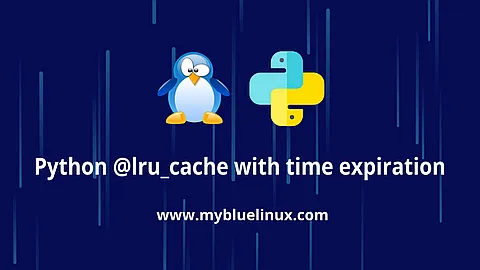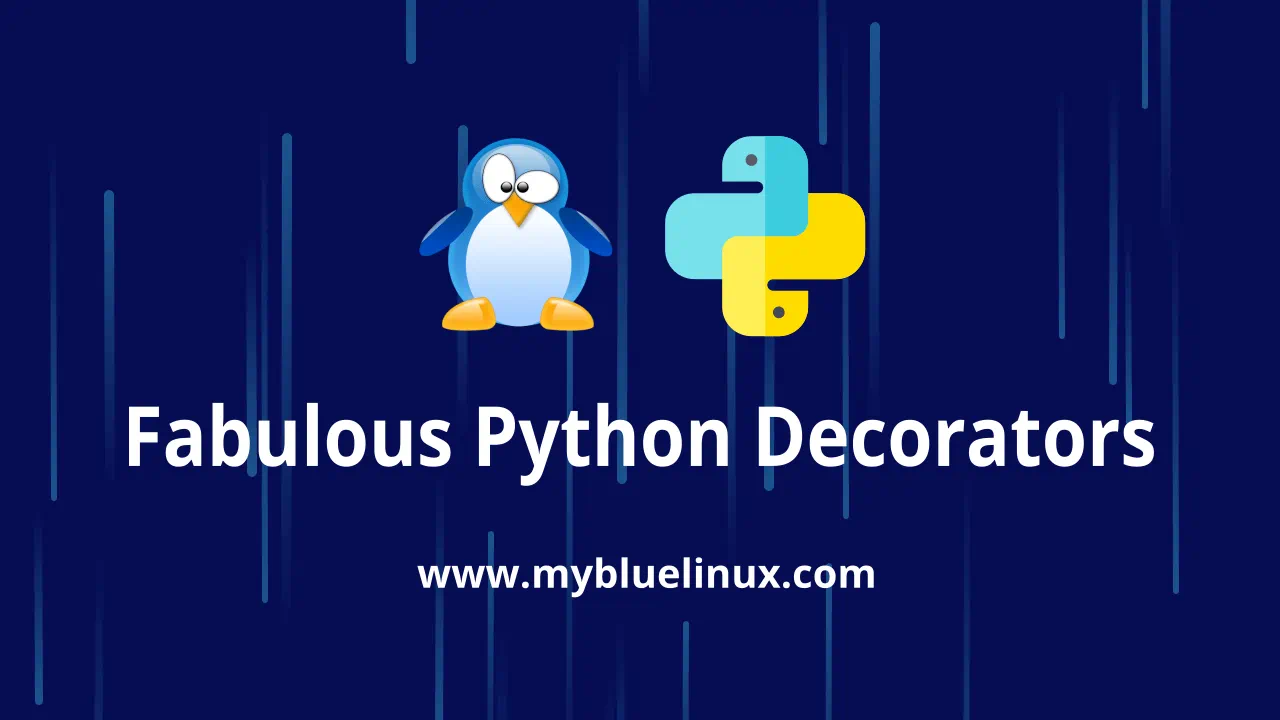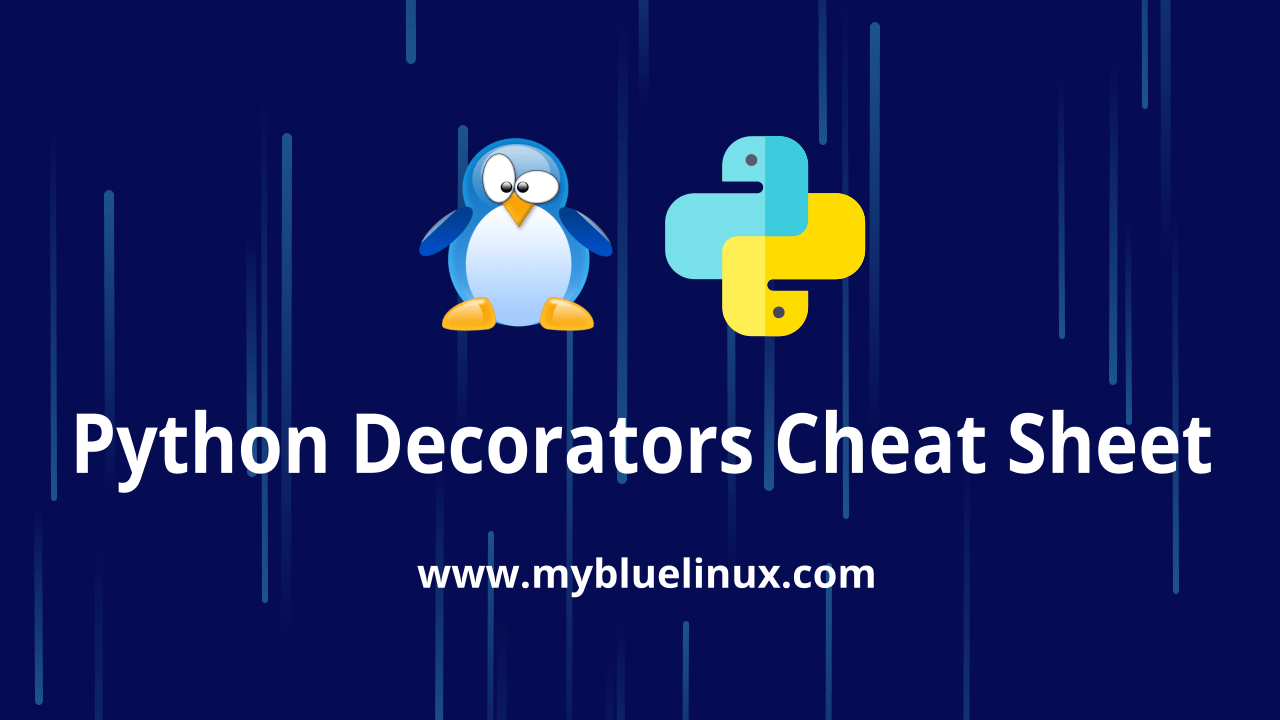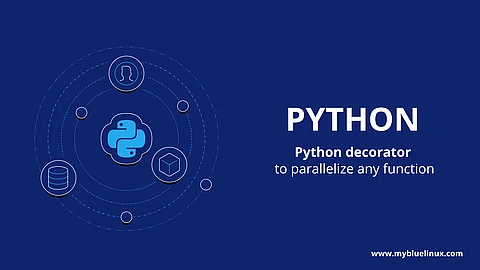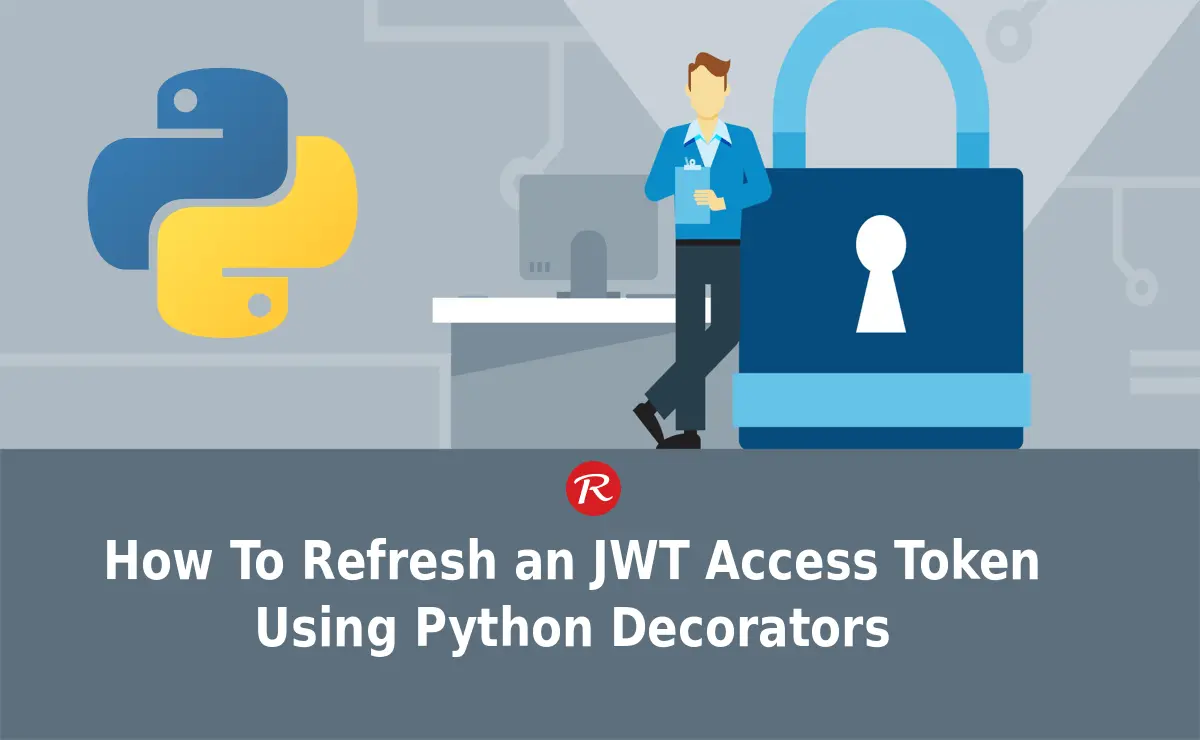python decorator
The Power of Python Decorators
At their core, Python’s decorators allow you to extend and modify the behavior of a callable (functions, methods, and classes) without permanently modifying the callable itself.
Any sufficiently generic functionality you can tack on to an existing class or function’s behavior makes a great use case for decoration. This includes the following:
- logging
- enforcing access control and authentication
- instrumentation and timing functions
- rate-limiting
- caching and more
Sure, decorators are relatively complicated to wrap your head around for the first time, but they’re a highly useful feature that you’ll often encounter in third-party frameworks and the Python standard library. Explaining decorators is also a make or break moment for any good Python tutorial. I’ll do my best here to introduce you to them step by step.
When you create a big python application, you can began to run into challenges with longer scripts that extended beyond the expiration of a single JWT.
To elegantly solve this, You can use decorators to check the token’s expiration and request a new token if necessary. This article goes over the framework I set up so that you can apply a similar mechanism in your own scripts.
Setting the Scene
import time
import requests
class myAPI():
host = None
key = None
secret = None
access_token = None
access_token_expiration = None
def __init__(self,host,key,secret):
# the function that is executed when
# an instance of the class is created
pass
def getAccessToken(self):
# the function that is
# used to request the JWT
pass
class Decorators():
@staticmethod
def refreshToken(decorated):
# the function that is used to check
# the JWT and refresh if necessary
pass
Our class will work by requiring the fields necessary to request the JWT. Without access, there is nothing more our class will do.
When I was creating a one script, which uses JWT for authentication, I began to run into challenges with longer scripts that extended beyond the expiration of a single JWT.
To elegantly solve this, I used decorators to check the token’s expiration and request a new token if necessary. This article goes over the framework I set up so that you can apply a similar mechanism in your own scripts.
Setting the Scene
To get started, I’ve outlined all the parts needed to set up our token-refreshing framework.
